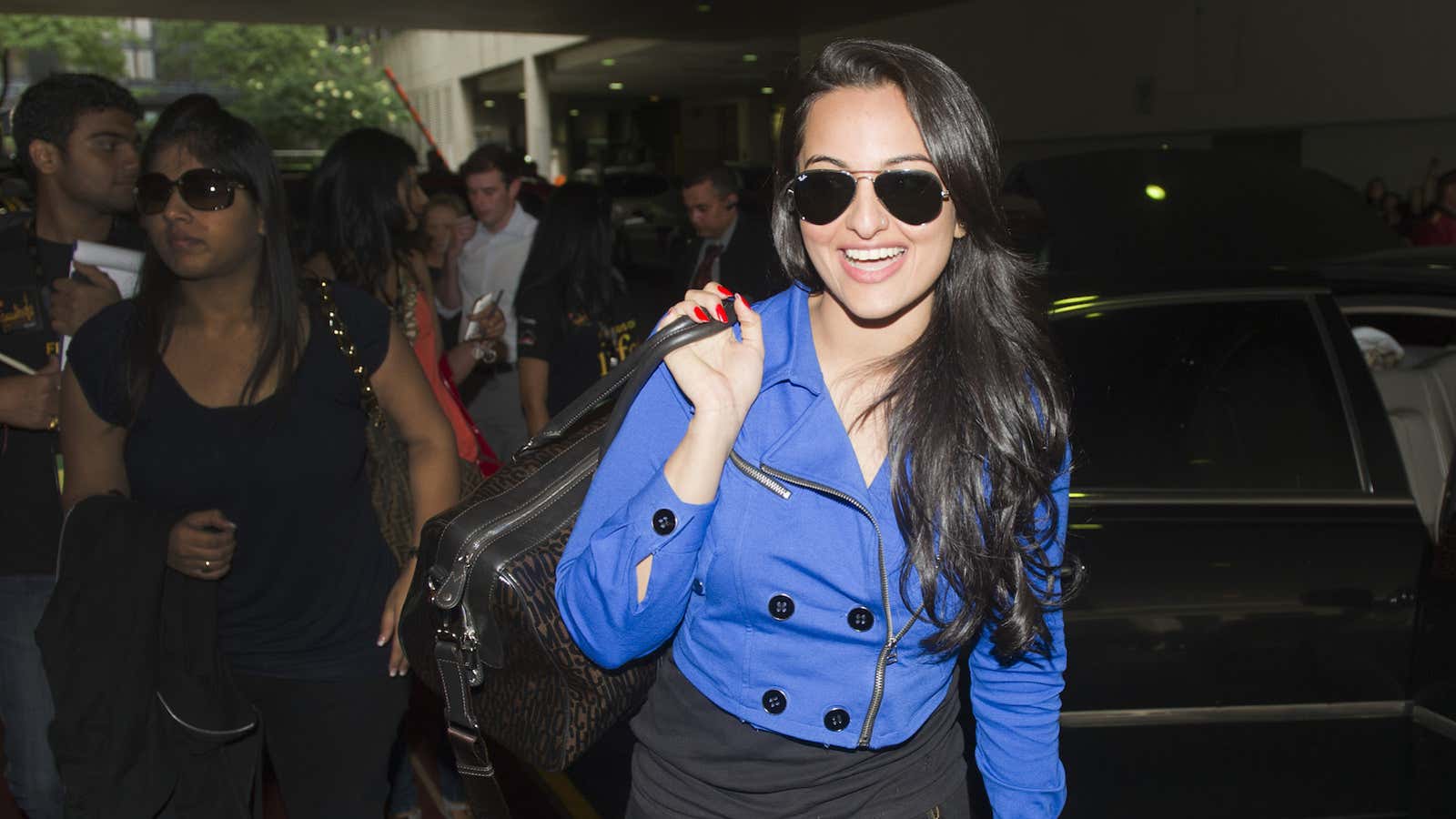Bollywood, India’s prolific and culturally influential film industry, doesn’t have a stellar reputation for treating its women well. Films with substantial roles for women are few, male stars dominate the industry in terms of clout and compensation, and in far too many popular films, the camera focuses on the female actor’s body in ways that grate on the senses.
There is even a UN-sponsored study that actually quantifies how Bollywood treats its female characters. Indian actresses are more likely to be shown wearing skimpy clothes, or even partially nude, than their counterparts in other film industries.
For long, the norm for a mainstream Bollywood actress was to be silently part of the system or risk being seen as ‘inconvenient’ if she speaks out about issues related to gender and objectification while playing glamorous roles on celluloid.
This is now changing, with a new generation of women stars speaking out against objectification. They are also prompting a discussion about the disparity in pay between men and women actors. Their vast social media following is helping amplify these messages.
Along with the new and happy trend of Bollywood stars laughing at themselves—such as Shahrukh Khan and Alia Bhatt—this appears to be a more significant shift that will hopefully make Bollywood a more women-friendly place for coming generations of actors.
Listen, guys
Sonakshi Sinha, who made her debut in 2010 with Dabangg, one of the highest grossing Bollywood films of all times, recently posted a picture of a skeleton on her Instagram account, with the following text:
To all those who keep commenting on my weight, whether its a full picture, or a close up where you cant see jack. Take a good look at this picture. Now get this: 1) this ain’t ever gonna be me. 2) get over it. 3) i wish u could see which finger i hold up for shallow and idiotic people like yourself.
Sinha, whose father is a former actor and now a politician, has often been criticized by the media for not being as thin as other famous Bollywood stars; she was even called a “fat cow” on her birthday.
Last month, actress Deepika Padukone got into a fierce fight with Times of India newspaper after they tweeted a video with the comment, “OMG! Deepika Padukone’s cleavage show!”
This was Padukone’s response:
The Times of India then tweeted back: ”It’s a compliment! You look so great that we want to make sure everyone knew! :).” Padukone’s stand against India’s leading newspaper was supported by Bollywood directors and actors—and apparently even the newspaper’s own journalists.
Earlier in the year, another young actor, Parineeti Chopra, argued with a male journalist who was clueless about menstrual cycles. Periods are still a taboo subject in India, and hardly ever spoken about publicly, let alone at a press conference.
The journalist, while interviewing Chopra at an event organised by a sanitary napkin brand, referred to menstrual cycle as “a problem.” Chopra responded: “I have come here to beat up people like these… men really need to understand what periods are and understand it is not a problem. They are very healthy and natural.”
Chopra has also tweeted her support for both Padukone and Sinha, for protesting against the regressive depiction of women in media.
But, the fight against the standards of impossible beauty that Bollywood imposes on its leading ladies is not going to be easy. Even when actresses are given an opportunities to portray unglamorous, yet powerful female characters, they often face the ire of other directors.
Priyanka Chopra, one of the most successful Bollywood stars, recently played Olympic bronze medallist Mary Kom in a big-budget film. She said she bulked up for the role and was “yelled” at by the producer (Sanjay Leela Bhansali) of the same movie for “looking like a man.”
